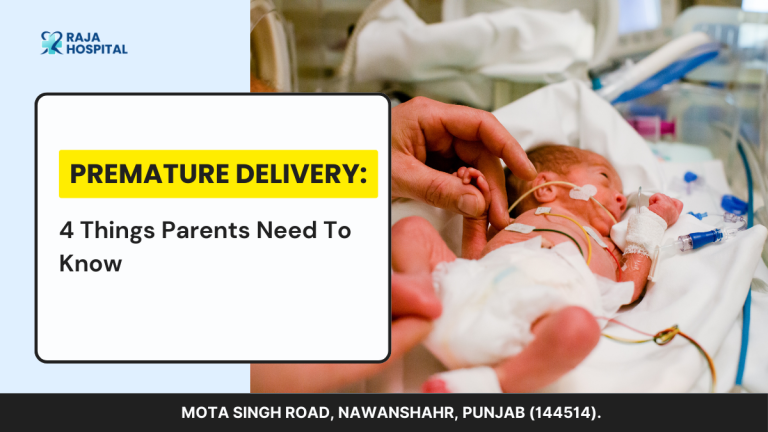Tips for Planning a Pregnancy: What to Do and What to Avoid
Reviewed By DR. LAKSHITA SAINI (MBBS, MS OBS & GYNAE) on 25th September 2023.
Bringing a new life into the world is a joyous and life-changing experience. Planning a pregnancy involves more than just deciding to have a baby; it requires careful consideration of various factors to ensure a healthy journey for both the mother and the baby.
Whether you’re just starting to think about starting a family or have been actively planning, this comprehensive guide will provide you with valuable insights into what to do and what to avoid during this exciting phase of your life.
Planning for Parenthood: Taking the First Steps
The decision to start a family marks the beginning of a transformative journey. As you embark on this path, there are some initial steps you can take to set the stage for a successful conception:
Understanding Your Menstrual Cycle
Knowledge is power, especially when it comes to understanding your menstrual cycle. Tracking your cycle length, ovulation days, and any irregularities can greatly increase your chances of conceiving.
There are numerous apps and online tools available that can help you monitor your cycle effectively, allowing you to pinpoint your fertile window—the prime time to try for a baby.
Consulting a Healthcare Provider
Before you start trying to conceive, it’s advisable to schedule a preconception appointment with a healthcare provider. This proactive step is crucial as it allows you to address any potential concerns and optimize your health for pregnancy. During this appointment, your doctor will review your medical history, conduct a physical examination, and discuss any pre-existing conditions that might impact your pregnancy journey. They can also provide valuable insights into the lifestyle changes you might need to make and recommend necessary vaccinations to ensure a safe pregnancy.
Diet: Fueling Your Fertility

Nutrition plays a vital role in preparing your body for pregnancy. A well-balanced diet can enhance your fertility and contribute to a healthy pregnancy:
Eating a Balanced Diet
When it comes to your diet, variety is key. Focus on consuming a wide range of nutrient-rich foods, including fruits, vegetables, whole grains, lean proteins, and healthy fats. These nutrients provide the foundation for a healthy pregnancy by supplying the necessary vitamins and minerals your body needs to support the growth and development of your baby. Additionally, prioritize foods that are high in folic acid—an essential nutrient that helps prevent neural tube defects in the baby’s spine and brain.
Maintaining a Healthy Weight
Achieving and maintaining a healthy weight is crucial for your reproductive health. Both being underweight and overweight can impact your ability to conceive. Being underweight can disrupt your menstrual cycle and ovulation, while excess body weight can lead to hormonal imbalances that affect ovulation. Aim for a balanced weight by adopting a sensible eating plan and incorporating regular physical activity into your routine.
Work Lifestyle: Balancing Work and Fertility

Juggling the demands of work while planning a pregnancy requires thoughtful planning and consideration:
Understanding Your Workplace Policies
Many workplaces offer maternity leave and benefits for expectant mothers. It’s essential to familiarize yourself with your company’s policies regarding maternity leave, flexible work hours, and pregnancy-related benefits. This knowledge will enable you to make informed decisions about when to conceive and how to manage your work commitments during pregnancy. By discussing your plans with your employer, you can work together to create a supportive and accommodating environment that eases the transition into motherhood.
Managing Stress
Modern life often comes with its fair share of stressors. However, high levels of stress can negatively impact fertility by disrupting hormone levels and the menstrual cycle. As you plan for pregnancy, prioritize stress-relief techniques to create a more conducive environment for conception. Activities like yoga, meditation, deep breathing exercises, and spending time in nature can help you manage stress effectively.
Health Conditions: Addressing Potential Concerns

Certain health conditions can influence your pregnancy journey. It’s crucial to address these concerns before conceiving:
Managing Chronic Conditions
If you have pre-existing chronic conditions such as diabetes, hypertension, or thyroid disorders, it’s essential to work closely with your healthcare provider to manage them effectively. Well-controlled conditions are essential for a safe and healthy pregnancy. Your doctor can provide guidance on adjusting medications, monitoring your health, and making any necessary lifestyle changes to optimize your chances of conceiving and carrying a baby to term.
Reviewing Medications
Discuss any medications you’re currently taking with your healthcare provider. Some medications may need to be adjusted or switched to safer alternatives before conception. It’s essential never to stop or alter medications without consulting your doctor, as some medications are critical for your overall health and wellbeing.
Exploring Your Options: Fertility Treatments and Support

If you’re encountering challenges with conception, know that you’re not alone, and there are various options available to you:
Fertility Treatments
For couples facing difficulties conceiving naturally, assisted reproductive technologies offer promising solutions. In vitro fertilization (IVF), intrauterine insemination (IUI), and other fertility treatments can significantly increase the chances of pregnancy. Consulting a fertility specialist will provide you with a clear understanding of your options and help determine the best approach based on your unique circumstances.
Support Groups and Emotional Well-being
Struggling to conceive can take an emotional toll on both partners. Consider joining support groups or seeking counseling to help you cope with the challenges of infertility. Connecting with others who are going through similar experiences can provide a sense of community, understanding, and comfort during this trying time.
What to Avoid: Habits and Practices

While focusing on what to do is essential, there are also certain habits and practices you should avoid during your preconception phase:
Smoking and Alcohol Consumption
Both smoking and excessive alcohol consumption can have detrimental effects on fertility and increase the risk of birth defects. Quitting smoking and limiting alcohol intake are essential steps to ensure a healthy pregnancy.
Excessive Caffeine Intake
Caffeine, found in coffee, tea, and some soft drinks, is another factor to consider. While moderate caffeine consumption is generally safe, high caffeine intake has been linked to fertility issues. It’s a good idea to cut down on caffeine during your preconception phase to support optimal reproductive health.
Ignoring Mental Health
Your mental well-being is just as important as your physical health. The stress and emotional strain that can accompany fertility struggles should not be underestimated. Ignoring signs of anxiety or depression can have repercussions on your overall health and fertility. If you find yourself struggling emotionally, don’t hesitate to seek professional help.
Conclusion
Planning a pregnancy is a multi-faceted journey that involves thoughtful preparation, healthy lifestyle choices, and seeking professional guidance when needed.
By understanding your body’s rhythms, maintaining a balanced diet, managing stress, addressing health conditions, and exploring various fertility options, you are setting the stage for a positive and healthy pregnancy journey.
Remember that each journey is unique, so practice patience, stay well-informed, and embrace the excitement that comes with bringing a new life into the world. With the right approach and a supportive network, you can navigate the path to parenthood with confidence and joy.







